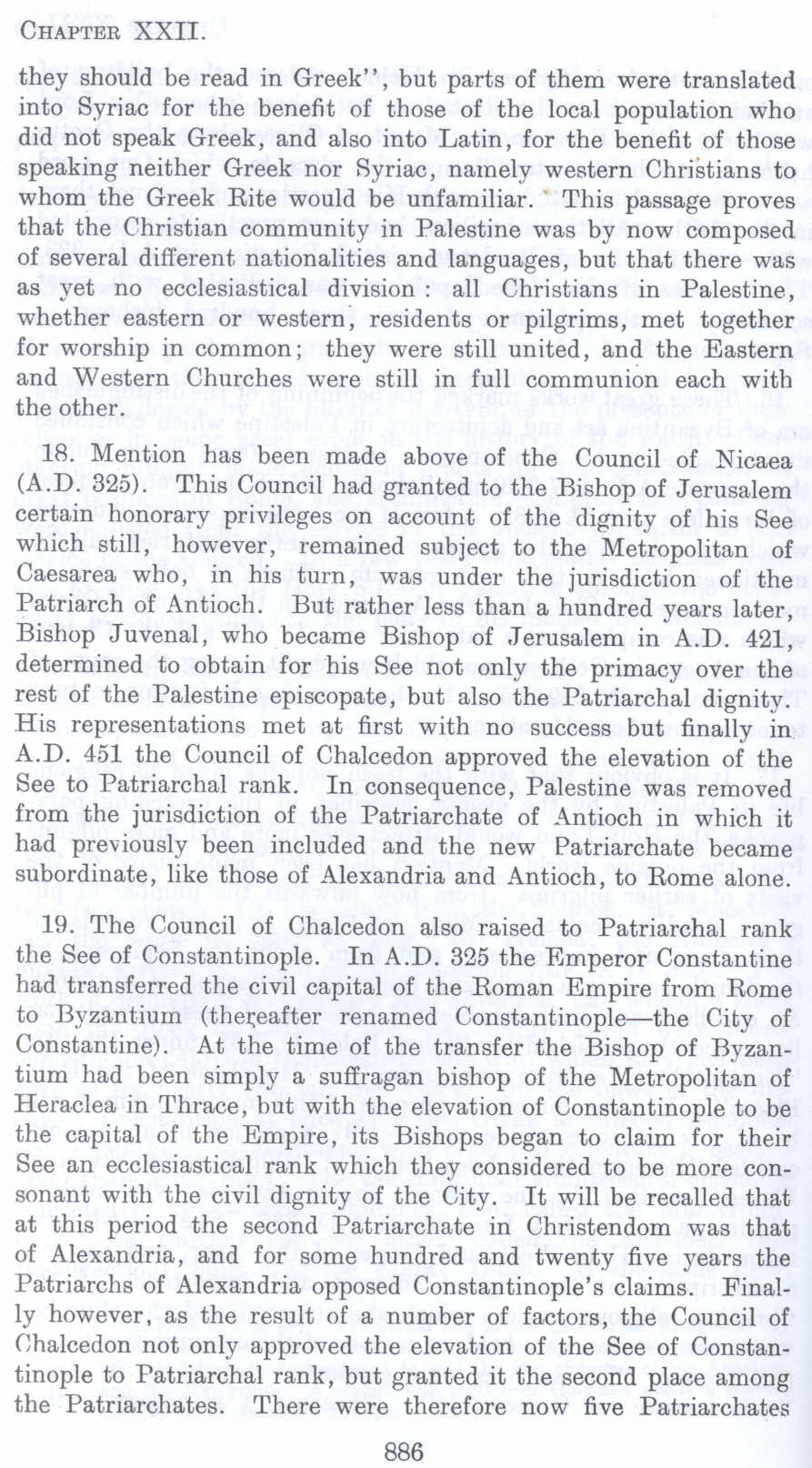| Prev | Next |  |
| Prev | Next |
| PalestineRemembered | About Us | Oral History | العربية | |
| Pictures | Zionist FAQs | Haavara | Maps | |
| Search |
| Camps |
| Districts |
| Acre |
| Baysan |
| Beersheba |
| Bethlehem |
| Gaza |
| Haifa |
| Hebron |
| Jaffa |
| Jericho |
| Jerusalem |
| Jinin |
| Nablus |
| Nazareth |
| Ramallah |
| al-Ramla |
| Safad |
| Tiberias |
| Tulkarm |
| Donate |
| Contact |
| Profile |
| Videos |
British Mandate: A Survey of Palestine: Volume II - Page 886 |
Disclaimer
The above documents, article, interviews, movies, podcasts, or stories reflects solely the research and opinions of its authors. PalestineRemembered.com makes its best effort to validate its contents.


Post Your Comment
*It should be NOTED that your email address won't be shared, and all communications between members will be routed via the website's mail server.
they should be read in Greek", but parts of them were translated into Syriac for the benefit of those of the local population who did not speak Greek, and also into Latin, for the benefit of those speaking neither Greek nor Syriac, namely western Christians to whom the Greek Rite would be unfamiliar. This passage proves that the Christian community in Palestine was by now composed of several different. nationalities and languages, but that there was as yet no ecclesiastical division : all Christians in Palestine, whether eastern or western; residents or pilgrims, met together for worship in common; they were still united, and the Eastern and Western Churches were still in full communion each with The other.
18. Mention has been made above of the Council of Nicaea (A.D. 325). This Council had granted to the Bishop of Jerusalem certain honorary privileges on account of the dignity of his See which still, however, remained subject to the Metropolitan of Caesarea who, in his turn, was under the jurisdiction of the Patriarch of Antioch. But rather less than a. hundred years later, Bishop Juvenal, who became Bishop of Jerusalem in A.D. 421, determined to obtain for his See not only the primacy over the rest of the Palestine episcopate, but also the Patriarchal dignity. His representations met at first with no success but finally in A.D. 451 the Council of Chalcedon approved the elevation of the See to Patriarchal rank. In consequence, Palestine was removed from the jurisdiction of the Patriarchate of Antioch in which it had previously been included and the new Patriarchate became subordinate, like those of Alexandria and Antioch, to Rome alone.
19. The Council of Chalcedon also raised to Patriarchal rank the See of Constantinople. In A.D. 325 the Emperor Constantine had transferred the civil capital of the Roman Empire from Rome to Byzantium (thereafter renamed Constantinople-the City of Constantine). At the time of the transfer the Bishop of Byzantium had been simply a suffragan bishop of the Metropolitan of Heraclea in Thrace, but with the elevation of Constantinople to be the capital of the Empire, its Bishops began to claim for their See an ecclesiastical rank which they considered to be more consonant with the civil dignity of the City. It will be recalled that at this period the second Patriarchate in Christendom was that of Alexandria, and for some hundred and twenty five years the Patriarchs of Alexandria opposed Constantinople's claims. Finally however, as the result of a number of factors, the Council of Chalcedon not only approved the elevation of the See of Constantinople to Patriarchal rank, but granted it the second place among the Patriarchates. There were therefore now five Patriarchates
886